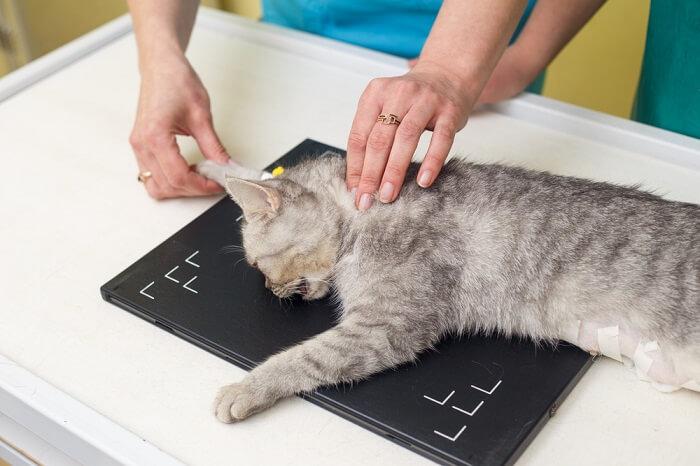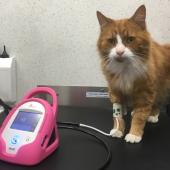Feline Heart Disease: A Guide for Cat Owners

Feline heart disease is a relatively common condition that, if left untreated, can significantly impact a cat's quality of life. Understanding the causes, symptoms, diagnosis, and treatment options is crucial for cat owners to provide the best care for their feline friends.
 What is a congenital disease?
What is a congenital disease?
Congenital abnormalities result from aberrant fetal development, and the illness affects the animal from the moment of birth. Though the illness is present from birth, symptoms can not become apparent until later in life. The heart is not an exception to the rule that any portion of the body can have congenital abnormalities. The heart is an intricate structure, and a lot may go wrong when it develops.
Why has my pet got heart disease?
One in every 100 cats is born with a congenital cardiac condition. Why certain animals' hearts develop improperly is a mystery. It most likely results from a confluence of hereditary and environmental variables. Certain diseases are more prevalent in specific breeds, which suggests that some of them are partially inherited by the progeny. Animals with hereditary illnesses need not to be permitted to procreate because of this.
What are the signs of heart disease?
Signs of serious problems can be obvious, but sometimes you might not even be aware that your pet has a problem. A vet's normal check may reveal a heart murmur, which is frequently one of the initial indications of a cardiac problem. You should take a newly acquired kitten to the veterinarian so they can be examined. Your veterinarian should be able to detect any murmurs by listening to their heart.
On the other hand, some illnesses don't show any symptoms when they first start. An animal with a congenital problem may develop heart failure if their cardiac illness worsens. If the condition is substantial, this could happen within the first several weeks or months of life rather quickly. However, until the animal reaches adulthood, in many cases no symptoms appear.
Not every cat will develop all the following symptoms and many cats will have more than one.
- Poor appetite
- Weight loss
- Lethargy or inactivity
- Difficulty with or discontinuing exercise
- Regularly elevated heart rate
- Increased respiratory rate and effort
- Shortness of breath or difficulty breathing
- Sudden hind leg paralysis
- Fainting/collapse
Common heart diseases?
There are several types of heart diseases that can affect cats. Here is a list of some common cat heart diseases:
-
Hypertrophic Cardiomyopathy (HCM): This is the most common heart disease in cats, characterized by the thickening of the heart muscles, making it harder for the heart to pump blood effectively.
-
Dilated Cardiomyopathy (DCM): DCM leads to the enlargement of the heart chambers, causing them to weaken and affecting the heart's ability to contract properly.
-
Restrictive Cardiomyopathy (RCM): In RCM, the heart muscles become stiff and less able to expand and contract, leading to impaired heart function.
-
Arrhythmogenic Right Ventricular Cardiomyopathy (ARVC): This rare genetic condition affects the right side of the heart, leading to irregular heartbeats and potential heart failure.
-
Mitral Valve Disease (MVD): MVD occurs when the mitral valve, which separates the left atrium and ventricle, fails to close properly. This can lead to a backflow of blood, causing the heart to work harder.
-
Aortic Stenosis: Aortic stenosis is a congenital heart defect where the aortic valve narrows, restricting blood flow from the heart.
-
Endocarditis: Endocarditis is an inflammation of the inner lining of the heart, often caused by bacterial infection. It can lead to heart murmurs and valve damage.
-
Thromboembolism (Feline Aortic Thromboembolism): While not a heart disease per se, it's a condition where a blood clot lodges in the aorta, impacting blood flow to the hind legs due to underlying heart disease.
Compared to female cats, male cats are more likely to have a congenital cardiac condition. It's important to note that each of these conditions can vary in severity, and they often require different approaches to diagnosis and treatment. Regular veterinary check-ups and early detection are crucial in managing these heart diseases and ensuring a good quality of life for affected cats.
How do vets diagnose heart defects?
Diagnosing feline heart disease typically involves a combination of physical examination, blood tests, electrocardiograms (ECG or EKG), x-rays and echocardiograms (ultrasound of the heart). Early detection is essential, as it allows for better management of the condition. Treatment options vary depending on the specific type and severity of the heart disease but often include medications to manage symptoms, improve heart function, and regulate blood pressure.
Can congential heart disease be treated?
Unforunately the long-term outlook for animals with severe congenital heart disease is usually not good. The only cure for heart defects is surgical correction and this is rarely performed in cats. In some cases animals have no problems with their disease and can live with the condition. If animals develop heart failure then this can be managed with drugs to control signs.
Will my pet get better?
Your pet will most likely need to be referred to a specialized surgeon if surgery is an option for treating their cardiac problem. Nonetheless, people typically recover from operations quickly, returning to normalcy in a matter of days or weeks. Regretfully, your pet might require medication therapy for the remainder of their life if surgery is not an option. Seeing a young animal suffer from heart illness can be extremely upsetting, so if there is no cure for your pet, you should talk to your veterinarian about whether euthanasia would be the most humane course of action.





